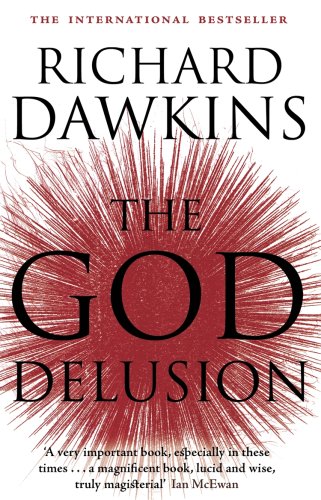Ch 1. A Deeply Religious Non-Believer (pp. 11-27)
Ch 2. The God Hypothesis (pp. 29-73)
Ch 3. Arguments for God‘s Existence (pp. 77-109)
1. The Old “Materialist“ versus “Supernatualist“ Debate is Repeated
It seems that Dawkins is repeating the old philosophical arguments between realists and idealists, naturalists and supernaturalists, Platonists and Aristotelians/Nominalists, etc. The philosophical constructs for describing what is real go back to the Hebrews and the Greeks
Dawkins is using philosophical constructs for defining reality that many of us no longer need. Worldviews continue to evolve. The irony is that Dawkins creates a fundamentalist straw person which he condemns, but which he suggests characterizes all people of faith.
Dawkins is a scientific fundamentalist who condemns the worldviews of religious fundamentalists.
Dawkins asserts that he can experience “awe“ while observing natural phenomena (like a sunset) but he does not ground this source of awe in the divine. He believes it belongs entirely to the material world. The source of his awe is the earth, nature, humanity. it is not something existing beyond nature or humanity.
Back in the early 20th century a German theologian, Rudolph Otto (1869-1937) sought to define religion in a new way. In his book The Idea of the Holy (1923) Otto described religion as a non-rational but objective sense he called belief in the *numinous.* Religion was a great mystery, inspiring awe and the promise of bliss. That spiritual quality he applied to the Divine in a way he hoped scientifically trained people would consider believable. Many today follow variations of Otto in their attempts to link science and faith.
Dawkins would accept the existence of mystery but he has no need to locate that quality in a divine being.
Modern debates between science and faith have moved beyond these catagories and we will discuss how that has happened in future classes. Dawkins is a scientific fundamentalist who rightly condemns religious fundamentalists, but not people like us.
2. Dawkins presents his arguments as “either/or“ not “both/and“ propositions
Dawkins cannot abide compromise. For him the issues are black/white. In chapter two, he challenges theism, deism and pantheism, and considers only atheism the answer. He denigrates those who would seek an accommodation between science and faith.
Dawkins believes “there are some things the human mind cannot grasp“ but he does not attribute the source of such things to a “divine mind“ or an “omniscient being.“ Dawkins says that both science and religion require the same “intellectual scrutiny.“ Who among us would disagree?
In addition to taking on theism, Dawkins challenges all arguments, across the board, that would seek a middle ground. Whether from science (example - Stephen Jay Gould who proposed NOMA - non-interlapping magisteria - that respects both science and faith) or from faith (example John Haught who argues that both God and evolution are compatible).
Dawkins casts dispersions on all attempts to reach a middle ground and declares both individuals and groups who resort to religion as *delusional.*
I think we need to unpack, and more clearly come to understand what Dawkins means by “The God Delusion“ and *delusional.*
3. Dawkins engages in intellectual “cherry picking“
In chapter three, Dawkins challenges all attempts to rationally prove the existence of God. I do not believe the existence of God can be proven rationally. Humans have been trying to engage in these debates as far back as the Middle Ages (e.g. the Catholic philosophers, or Schoolmen like Anselm and Aquinas) but all proofs, classic or modern, can be responsibly disputed.
We cannot prove rationally that God exists.
I like to use the term *cherry pciking* to describe what Dawkins does again and again in his book. He uses many authorities to disprove religion and catalogues the evil that it has produced. Who among us could not do the same?
Dawkins picks his cherries (presents his case) indiscriminately and inconsistently. It is as if he believes he can convince others of the truth of his arguments by the sheer force and number of his examples.
He also reads theology in a selective way. He seeks only the answers he desires to prove his arguments. Like an indiscriminate cherry picker, he selects the juicy items and discards the rest. |
